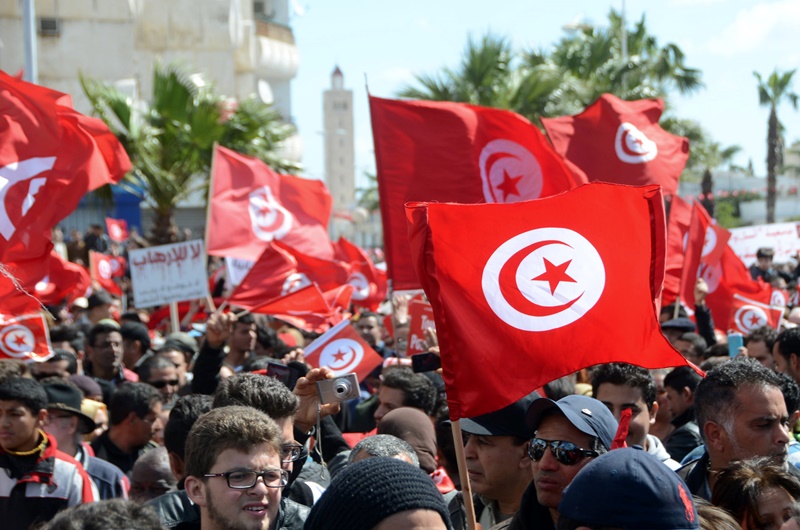TUNIS, Tunisia – Tunisian security forces decimated the leadership of a Tunisian jihadi group linked to al-Qaida’s North African branch, including the man identified as the “operational chief” of the attack this month on the National Bardo Museum that killed 22 people, mostly foreign tourists, the interior minister said Sunday.

Najem Gharsalli said Khaled Ben Hamadi Chaieb, also known as Lokman Abou Sakhr, an Algerian, handled the operational end of the March 18 attack. Two gunmen were killed in the attack. Dozens of arrests have been made, five security officials fired and an officer charged with surveying the museum jailed.
Two other Algerians were among nine people killed Saturday by security forces in Gafsa, near the Algerian border, the minister told reporters, saying the leadership of the Okba Ignou Nafaa Brigade, which has killed dozens of security forces, was decimated.
WATCH: Dramatic video shows tourists inside Tunisia museum during terror attack
Gharsalli proclaimed the “beginning of the war against terrorism,” and revealed that Tunisia has acquired new equipment, “including drones.”
The announcement came as tens of thousands of Tunisians marched, joined by a handful of foreign leaders for a ceremony after the march to the National Bardo Museum. Among those present were French President Francois Hollande and Italian Prime Minister Matteo Renzi.
The international visitors were showing solidarity with Tunisia, whose fragile new democracy was deeply shaken by the museum attack.
The Islamic State group claimed responsibility for the Bardo attack, and it was unclear what ties the Tunisian brigade may have with the group that has distinguished itself in Iraq and Syria through its conquests, horrific beheadings and the quick spread of groups claiming affiliation in Libya and elsewhere. The presence of Algerians in the Okba Ibnou Nafaa Brigade, a Tunisian extremist group, underscores the links with al-Qaida in the Islamic Maghreb, the Algerian-based affiliate that in 2012 took over northern Mali.
READ MORE: Tunisia hunting 3rd attacker in deadly museum assault
Tunisian protesters unleashed revolts across the region known as the Arab Spring, and Tunisia is the only country to have built a democratic system as a result.
Hollande said France will strengthen intelligence co-operation with Tunisia, and U.S. Ambassador Jake Walles, also present, said Washington is working with Tunisian military and security forces “so that they have the tools, the equipment and the training that they need so they can do the job.” He didn’t elaborate.
Tunisian authorities are struggling with scattered extremist violence linked to various radical Islamic groups, largely linked to neighbouring countries Algeria or Libya.
Chaieb, the operational leader of the brigade, has been condemned to death several times in Algeria, and 21 arrest warrants had been issued for him, the minister said, adding that the Algerian was implicated in the July 2014 attack in which 15 Tunisian soldiers were killed near Mount Chaambi, near the Algerian border, and in a 2013 attack in which numerous soldiers’ throats were slit.
Photos of the bodies of the dead were shown at the news conference.



Comments